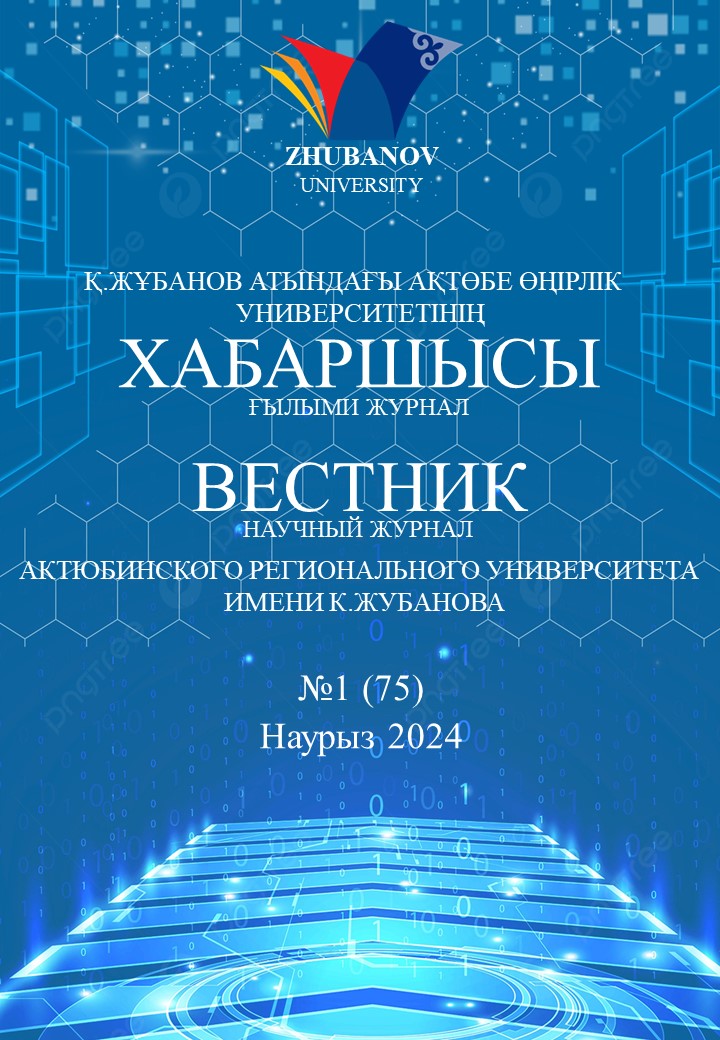Статья посвящена концепту «мудрость» как мироповедению и его роли в создании картины мира. Отражение ценностных понятий как проблем рассмотрено в аспекте дискурсий. Дидактическая направленность песен жырау объясняет апелляцию к паремиологическому фонду казахской и русской культур. Для разработки концепции казахской риторики с привлечением паремиологического фонда проведен литературный обзор изучения пословиц в русской и казахской культурах. Подбор пословиц иллюстрирует роль мироповедения как принципа создания риторического идеала. Осуществлено описание лексической и семантической корреляции идей в лирике жырау и пословицах. Функции концепта «мудрость» ‒ проявление как мировоприятия и мироповедения ‒ анализируются с позиции риторических статусов высказывания жырау. Такой взгляд позволил разработать классификацию дискурсий, выявить частотность упоминаний. При этом отклонение от установленных дискурсий показывает новаторство жырау и обновление жанров в их поэзии. Установлены также факторы частотности дискурсий. Они обусловлены связью денотативных и коннотативных значений повторяющихся этических категорий. Осуществлено дефинирование трактовок мудрости в аспекте мировоззрения и мироповедения. Их корреляция изучена как прием создания риторического идеала и картины мира. Уточнен характер казахской риторики как практической по преимуществу лишь на этапе становления поэзии жырау. Далее на фоне снижения назидательности, выработки новых художественных стратегий, осложнения символики казахская риторика отходит от практической направленности. Обогащаются техники риторической аргументации.
Э. Т. ИДРИСОВА
Доцент, кандидат филологических наук, Актюбинский региональный университет имени К. Жубанова, Актобе
elmira_idrisova@mail.ru
https://orcid.org/0000-0002-9437-6089
А.М. ЕСЕНТЕМИРОВА
старший преподаватель, ЕНУ им. Л. Н. Гумилева, Астана
Aigul.yessentemirova@mail.ru https://orcid.org/0000-0002-3478-5139
А.Е. АБАЙДИЛЬДА
докторант, Евразийский национальный университет им. Л.Н. Гумилева, Астана
abaidilda.a.e@gmail.com https://orcid.org/0000-0002-6282-1803
- Жанабаев К. Об особенностях развития казахской поэзии в XV– XVIII вв. [Электронный ресурс] // URL: article/n/ob-osobennostyah- razvitiya-kazahskoy-poezii-v-xv-xviii- vv-obschaya-harakteristika/view/ (дата обращения: 01.12.2023).
- Жаксылыков А. Ж. Предметно-концептуальный мир поэзии жырау и его передача в переводах на русский язык // Вестник КазНУ. Серия филологическая. – 2017. – № 2 (166). – С. 308–315.
- Уразаева К. Б. Пандетерминизм поэзии жырау и рефлексия как основа создания точного перевода // Межкультурная – интракультурная коммуникация: теория и практика обучения и перевода. Материалы V Международной научно-методической конференции, Уфа, 1-2 декабря 2016. – С. 305-313.
- Idrisova E., Shomanova G., Baiturina U. Symbolism as a way of rhetorical argumentation in zhyrau poetry. Structural-semiotic analysis // International Black Sea Modern Scientific Research Congress, September 29, 2022 а - October 02, 2022 / Rize, pp 823- 838. ISBN: 978-625-8246-14-8.
- Тодоров Ц. Завладение Америкой. ‒ София: Издательство «Изток-Запад», 2010. ‒ 328 с.
- Idrisova E., Shomanova G., Baiturina U. Rhetoric in Zhyrau Poetry. The experience of discourse study // Ahi Evran International Conference on Scientific Research 21-23 October 2022 б / Abstract Book, pp. 343-351. URL: www.ahievranconference.org ISBN: 978-625-8246-64-3.
- Афанасьев А. Н. Происхождение мифа. – М.: Высшая школа, 1996. – 150 с.
- Оркина А. Н. Аспектуально-темпоральная характеристика высказываний с семантикой обусловленности в современном русском языке: Автореф. дис…. филол. наук. ‒ СПб.: Рос. гос. пед. ун-т имени А.И. Герцена, 2000. – 20 с.


